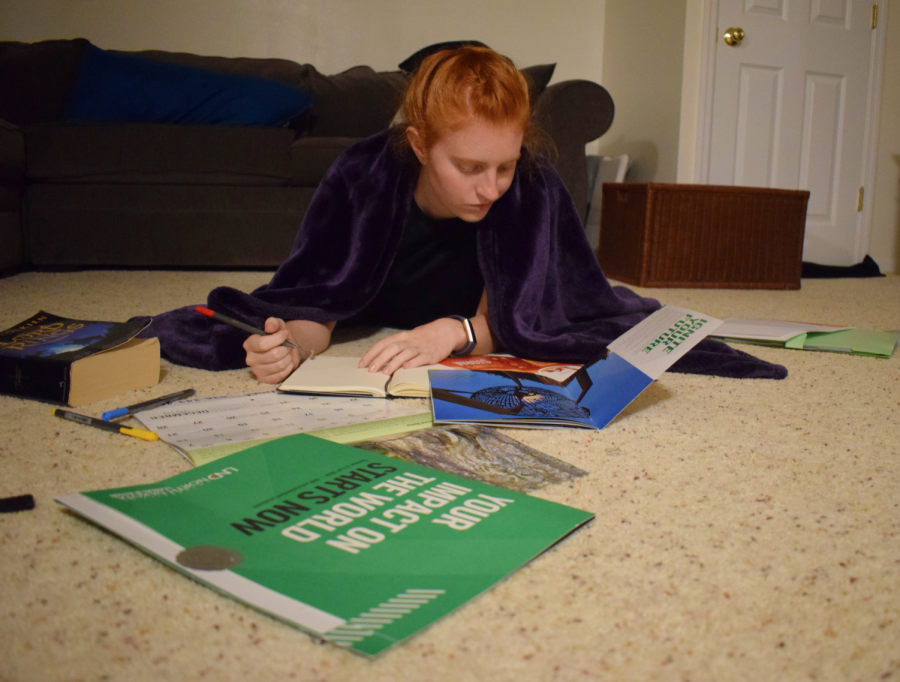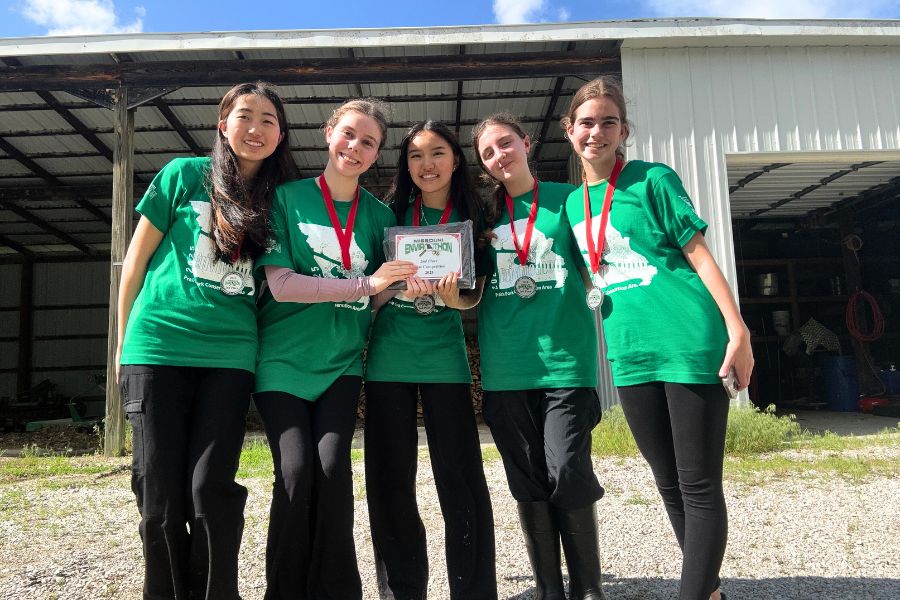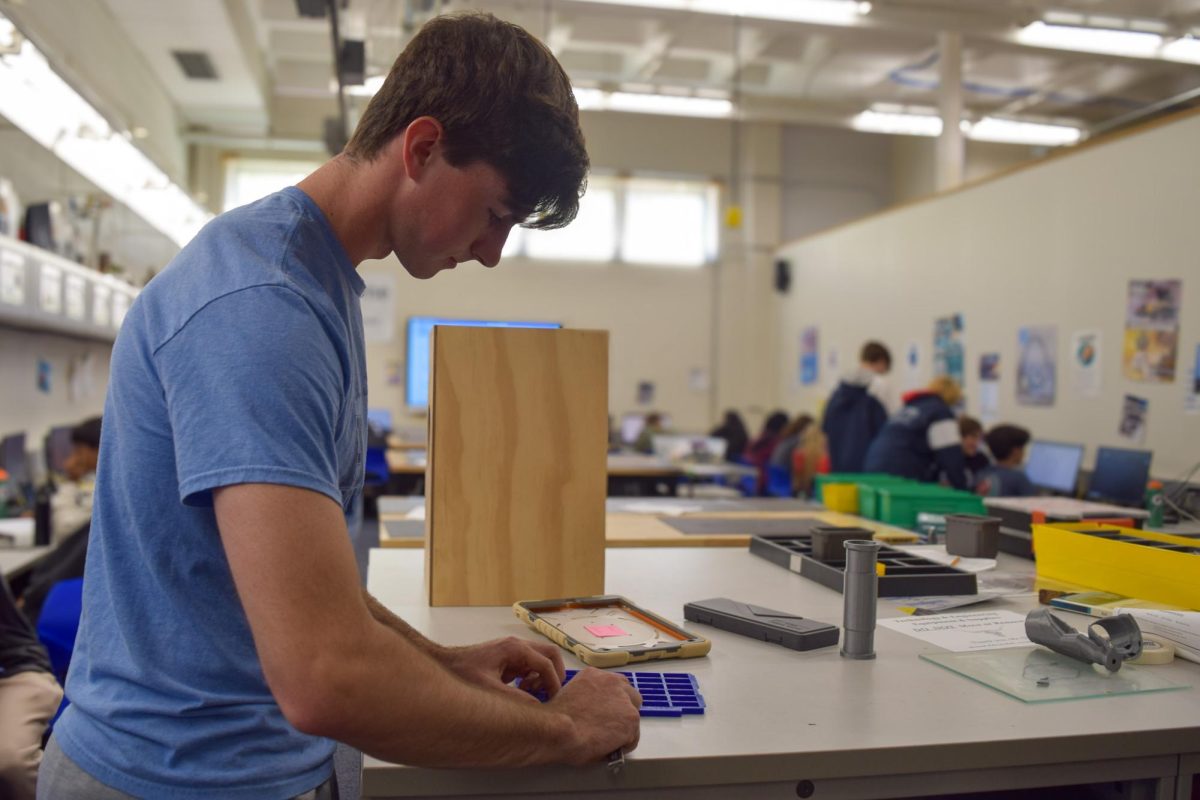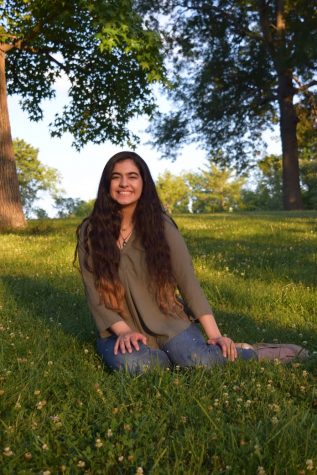2019 alumna Nell Jaskowiak’s post graduation plans, like the majority of the senior class, consisted of heading straight to college in the fall. Her university of choice was Rhodes College, where she intended to major in Environmental Science.
After years of preparation for college, Jaskowiak looked forward to the new environment that it offered. However, at orientation in June, her first real experience with the school did not uphold these expectations.
“It was such a pedantic atmosphere. It almost felt exactly like high school, which is why I was like ‘nope. Nope. Nope,’” Jaskowiak said. “In high school, there is that element of competition of needing to impress your peers, but we have these very quantifiable ways to be competitive. But in college, especially at orientation, since everyone’s in different majors taking different classes, the competition goes from who’s a better student to who has more going on as a human being. It’s just a [new] level of intensity and scrutiny from others.”
At orientation, Jaskowiak was also hit with a surprise about her financial aid package.
“I got a fellowship as part of my financial aid package, but nowhere on their website did they list what this fellowship was for. There was not even a department listed, so I had no one to contact to ask about it,” Jaskowiak said. “I found out at orientation it was contingent upon majoring or minoring in Latin. It was this big moment of ‘oh my god, what have I gotten myself into?’ I felt cornered. I did want to continue Latin at Rhodes, but 50% of the classes were history and not language, and with such a limited schedule space that felt like a lot to me.”
Required to take four-credit classes a semester, Jaskowiak wanted to focus her limited schedule on classes for the major she wanted, and this did not include their Latin program. Rhodes’ campus environment paired with the fellowship situation led Jaskowiak to start searching for colleges for the second time.
“I told my parents I hated it there. It was an overnight orientation, [and] I was in bed in my dorm that night Googling how to transfer out,” Jaskowiak said. “In July, I went on a road trip with my cousin, and we had a lot of down time, so we started looking at other colleges. I started Googling colleges [that] I had considered that had good Environmental Science programs, but were further away or not the size that I thought I wanted.”
Jaskowiak applied to state schools in July for the 2019-2020 school year as they had rolling admission. She was accepted into all of them, but none had any financial aid left to offer.
“I did move around as a younger kid to different cities. I know how it feels to be the new kid, and I know how coming in somewhere late can really impact the connections you form with people because you miss that foundational stage almost, and you jump in in the middle. And while you can still make really good friends, it’s still not the same. For college, I really didn’t want to have to do that,” Jaskowiak said. “Throughout middle school and high school, I didn’t really have a good social experience. A combination of me being an awkward child, in all of the gifted programs [and] a bunch of different factors led to me not having the greatest of social lives in middle school and high school. I saw college as my chance to improve in that area and try to have those experiences and connections that I didn’t get in high school.”
Without a choice for a different school, Jaskowiak is currently taking a gap year. During this time she is working at Dierbergs and volunteering at the World Bird Sanctuary.
“I didn’t really decide to take a gap year, I literally ran out of options for other things. This was my only option,” Jaskowiak said.
Having gone through college applications twice, Jaskowiak offers some advice.
“Don’t listen to other people. I got caught up in every single person around me being like, ‘you need to follow this track. This is the track you’ve been set on since forever ago. Keep going and working towards it and see it to the end.’ I never stopped to ask myself what my happiness looked like,” Jaskowiak said. “I didn’t put any time into genuinely trying to picture the kind of life I want for myself. I tried to picture myself fitting into colleges rather than making college what I wanted for me. That was definitely one of my biggest mistakes.”
Jaskowiak searched for ways to feel out a college environment rather than just its statistics with the website Niche.
“One of my favorite things about Niche is that they ask all reviewers to describe students at the school in three words. They show you a poll of what the top answer choices were. You can see the schools where it’s like ‘partiers, loud, outgoing’ or ‘nice, studious, friendly.’ That is another way to feel out the softer side of the equation,” Jaskowiak said. “There’s some of it I’m definitely not going to know until I go there, but I do feel a lot more prepared. I feel a lot better about the places I applied to because of it.”
With no older siblings or older friends to have seen go through this process, Jaskowiak finds social media to be resourceful in deciding between colleges.
“I was going through [this process] blind,” Jaskowiak. “This fall, one of my friends was like, ‘if you want to try to get a feel for a school, go on Instagram or Twitter and just search the name of the school up and see what kind of popular posts are.’ I did that, and honestly, I was surprised at what I saw,” Jaskowiak said. “I was looking up University of Arkansas and seeing a sea of sorority girls tailgating for football games, or holding drinks at parties; I was looking up North Dakota and seeing their police department having ice cream with a sorority and their K-9 unit chilling with some club at their social thing. The schools whose students’ posts all looked the exact same were schools I wasn’t really interested in checking out further. The ones where there was some football, some friends hanging out, some student life posts, a little of everything, those were the ones that I felt would be the healthiest atmosphere.”
Jaskowiak also stresses the importance of communication and paying closer attention to schools that reach out.
“Middle-tier schools that send you an email like once or twice a week show that they’re actually actively trying to recruit you rather than schools that just don’t care. When they do send those marketing emails–especially ones like ‘confirm your major with us; verify what you want to study’–ones that are trying to send you more targeted material are the ones that are going to actually help you,” Jaskowiak said. “When they really do try to get personalization, it means they’re going to be good at communicating with you and making sure that they keep you in the loop on important things down the road.”
Despite her hardships, Jaskowiak has a new appreciation for college life and the security that it offers.
“As cliché as it as, college should be about finding happiness for you, whatever that is. If that looks like being high-achieving, achieving a huge level of success and accolades, then yes, pursue those Ivy Leagues,” Jaskowiak said. “If that’s what would genuinely make you happy for you, go for it. But for me, that’s not what it is, so I’m trying to go a different route.”



![Focused on providing exceptional service, sophomore Darsh Mahapatra carefully cleans the door of a customer’s car. Mahapatra has always believed his customers deserve nothing less than the best. “[If] they’re trusting us with their car and our service, then I am convinced that they deserve our 100 percent effort and beyond,” Mahapatra said.](https://pwestpathfinder.com/wp-content/uploads/2025/10/DSC_0018-1200x800.jpg)
![Sophomore Aleix Pi de Cabanyes Navarro (left) finishes up a soccer game while junior Ava Muench (right) warms up for cross country practice. The two came to Parkway West High School as exchange students for the 2025-2026 school year. “The goal for the [exchange] program is to provide opportunities for both Parkway students and our international exchange students to learn about other cultures, build connections and become confident, capable, curious and caring — Parkway’s Four C’s — in the process,” Exchange Program Lead Lauren Farrelly said.](https://pwestpathfinder.com/wp-content/uploads/2025/10/Feature-Photo-1200x800.png)

![Gazing across the stage, sophomore Alexis Monteleone performs in the school theater. The Monteleone family’s band “Monte and the Machine” has been releasing music since 2012, but Alexis started her own solo career in 2024 with the release of her first single, Crying Skies. “My whole family is very musical, [and I especially] love writing [songs with them],” Monteleone said.](https://pwestpathfinder.com/wp-content/uploads/2025/09/DSC7463-1200x798.jpg)
![Amid teaching a lesson to her AP Calculus BC class, Kristin Judd jokes alongside her students in their funny remarks. Judd has always enjoyed keeping the mood light in her classroom, along with on the volleyball court. “[I enjoy] that side talk where you see [or] overhear a conversation and chime in, or somebody says something funny,” Judd said.](https://pwestpathfinder.com/wp-content/uploads/2025/09/image-1200x730.jpg)
![Eyeing the ball, junior Ella McNeal poses for her commitment pictures at Clemson University. McNeal’s commitment comes after months of contact with top Division 1 soccer programs. “ It has taken a lot to get to where I am, but I know that [what] I've already been through is just the beginning, and I can't wait for what is to come,” McNeal said.](https://pwestpathfinder.com/wp-content/uploads/2025/09/IMG_4926-1200x900.jpeg)


![Senior Adam Zerega stands with senior Dexter Brooks by farm equipment. Zerega often worked with friends and family on his farm. “I've been able to go to my family's farm since I was born. I [spend] at least three weekends a month [on the farm], so I'm there all the time,” Zerega said.](https://pwestpathfinder.com/wp-content/uploads/2025/04/IMG_4872-1200x900.jpg)

